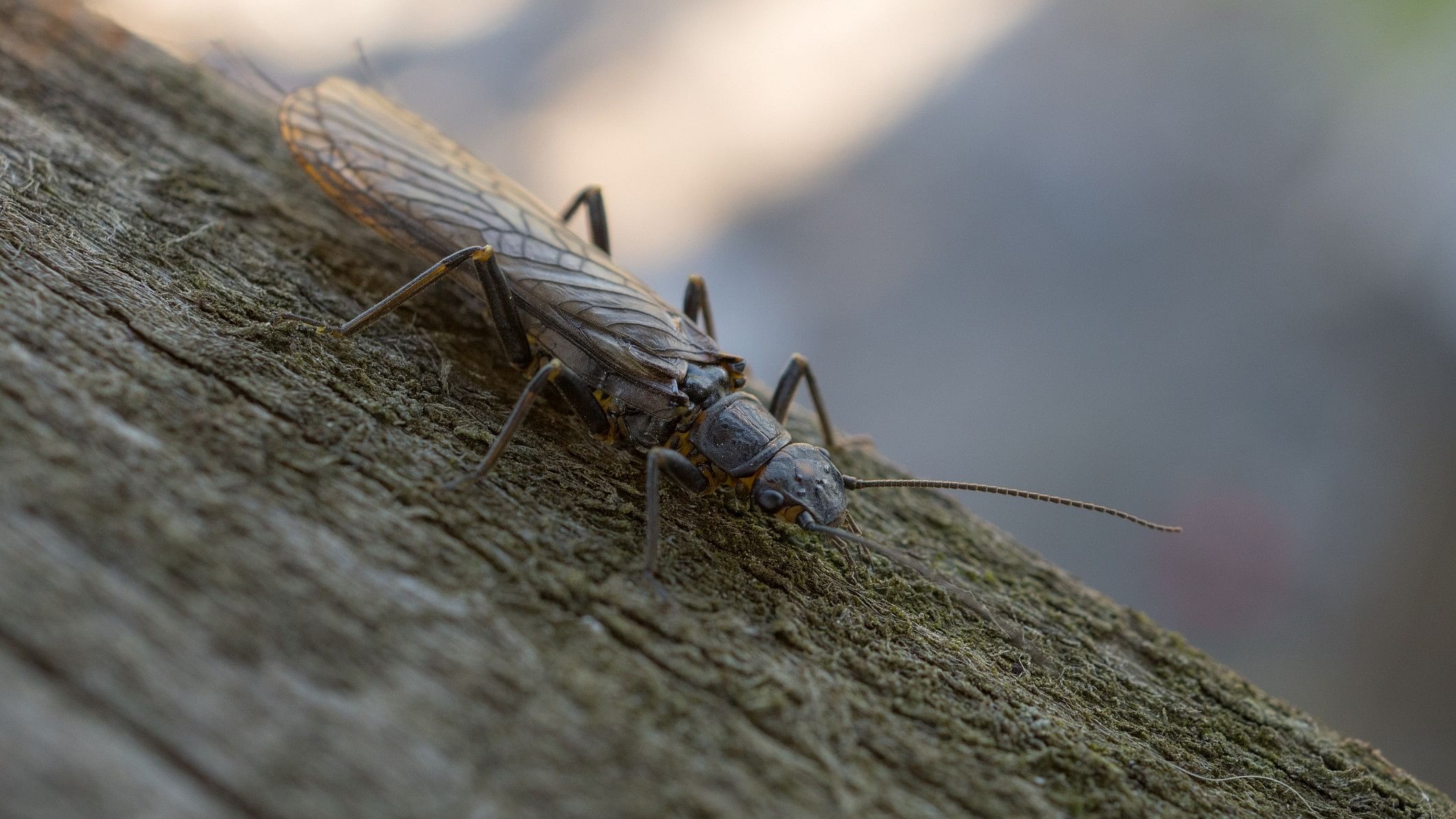
Representative image of a Stonefly.
Credit: iStock Photo
New Delhi: Deforestation could have mellowed down the 'warning' colour of the stonefly, a native of New Zealand, according to new research that presented "the world's most clear-cut case" of animals evolving in response to changes caused by humans.
"In natural forested regions, a native species has evolved 'warning' colours that mimic those of a poisonous forest species, to trick predators into thinking they are poisonous too," explained Jon Waters, Department of Zoology, University of Otago and co-author of the study published in the journal Science.
"But the removal of forests since humans arrived has removed the poisonous species. As a result, in deforested regions the mimicking species has abandoned this strategy -- as there is nothing to mimic -- instead evolving into a different colour," Waters said.
Moths in the UK changing colour in the 1800s in response to industrial pollution is considered a well-known example illustrating evolution.
Humans have disrupted ecological interactions between species that evolved over millions of years, but some of our native species are resilient enough to overcome this, said co-author Graham McCulloch, University of Otago.
"This study is important because it shows that, at least for some of our native species, there is the possibility of adapting to the environmental changes caused by humans, even when the change is rapid," McCulloch said.
"It also shows that independent populations have undergone similar changes in response to deforestation -- there have been similar shifts independently in different parts of the species' range -- showing that evolution can be a predictable process," McCulloch said.